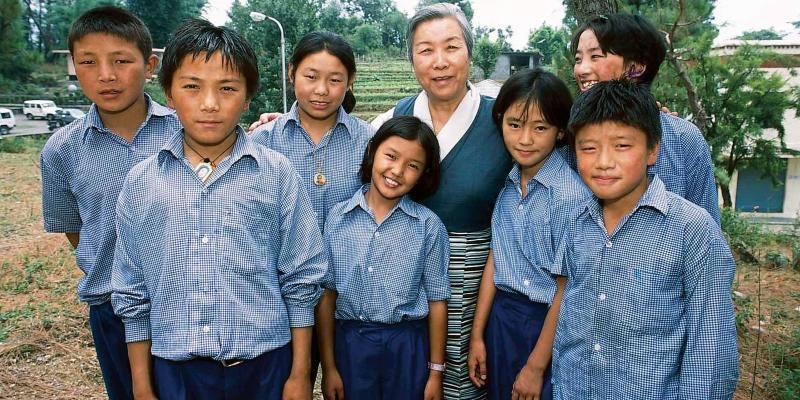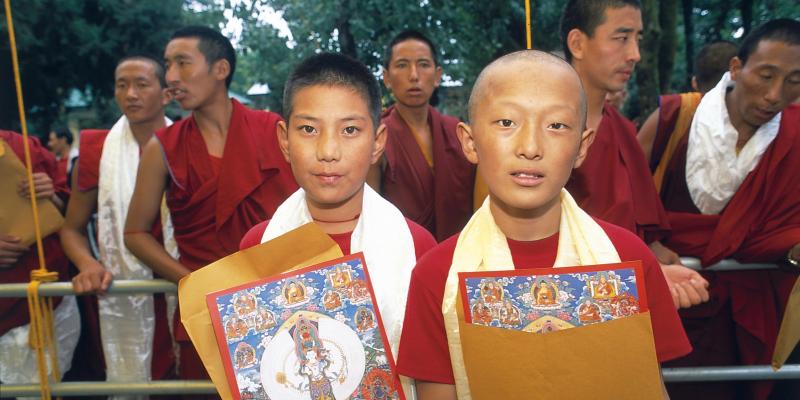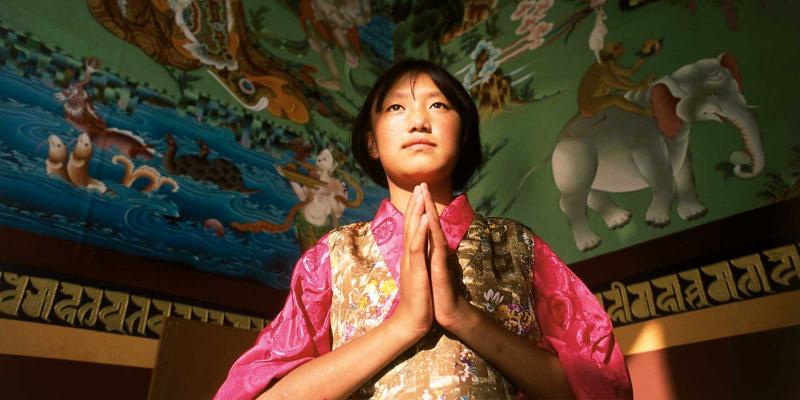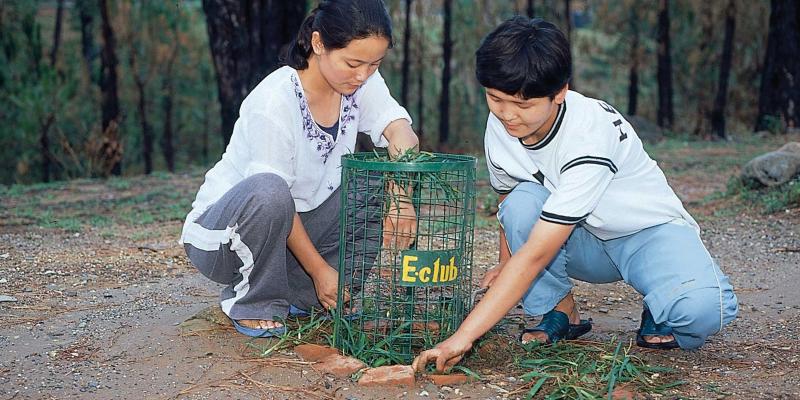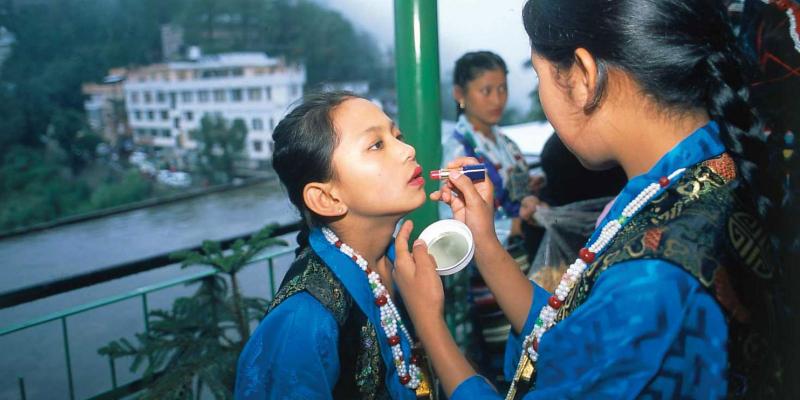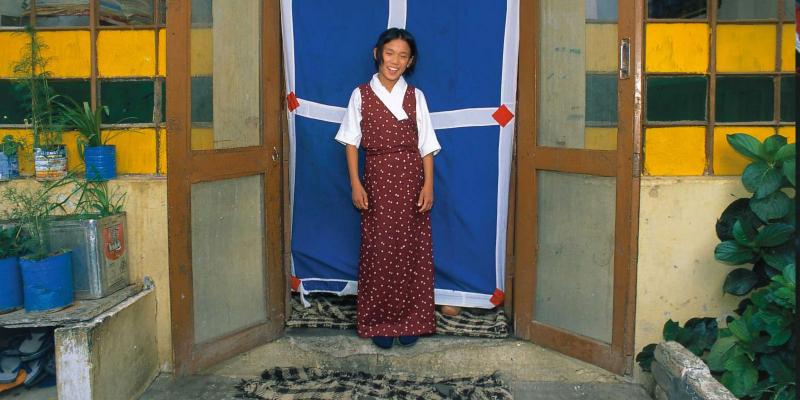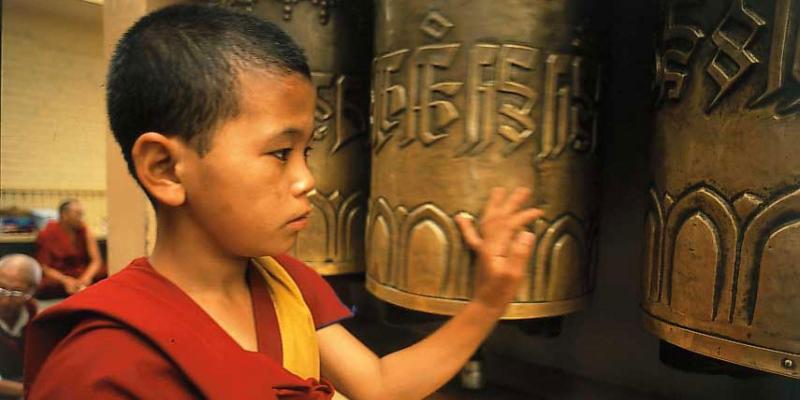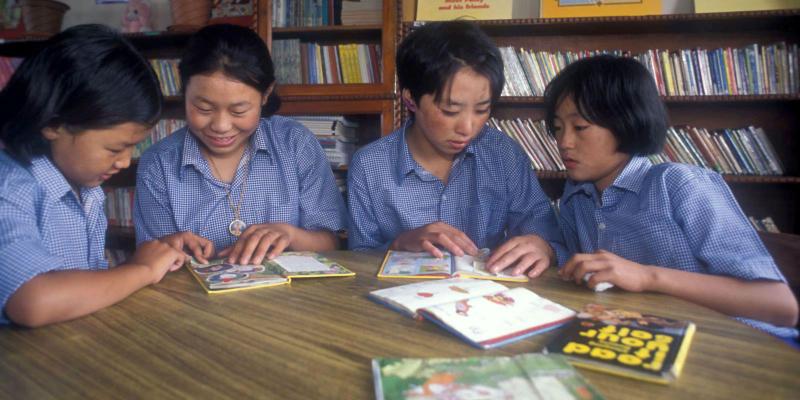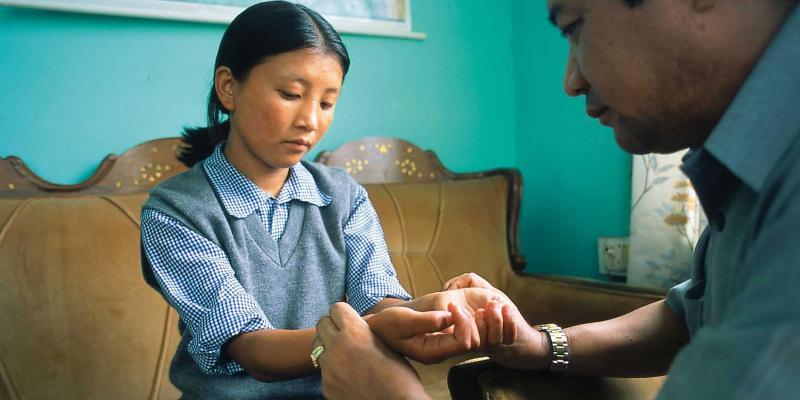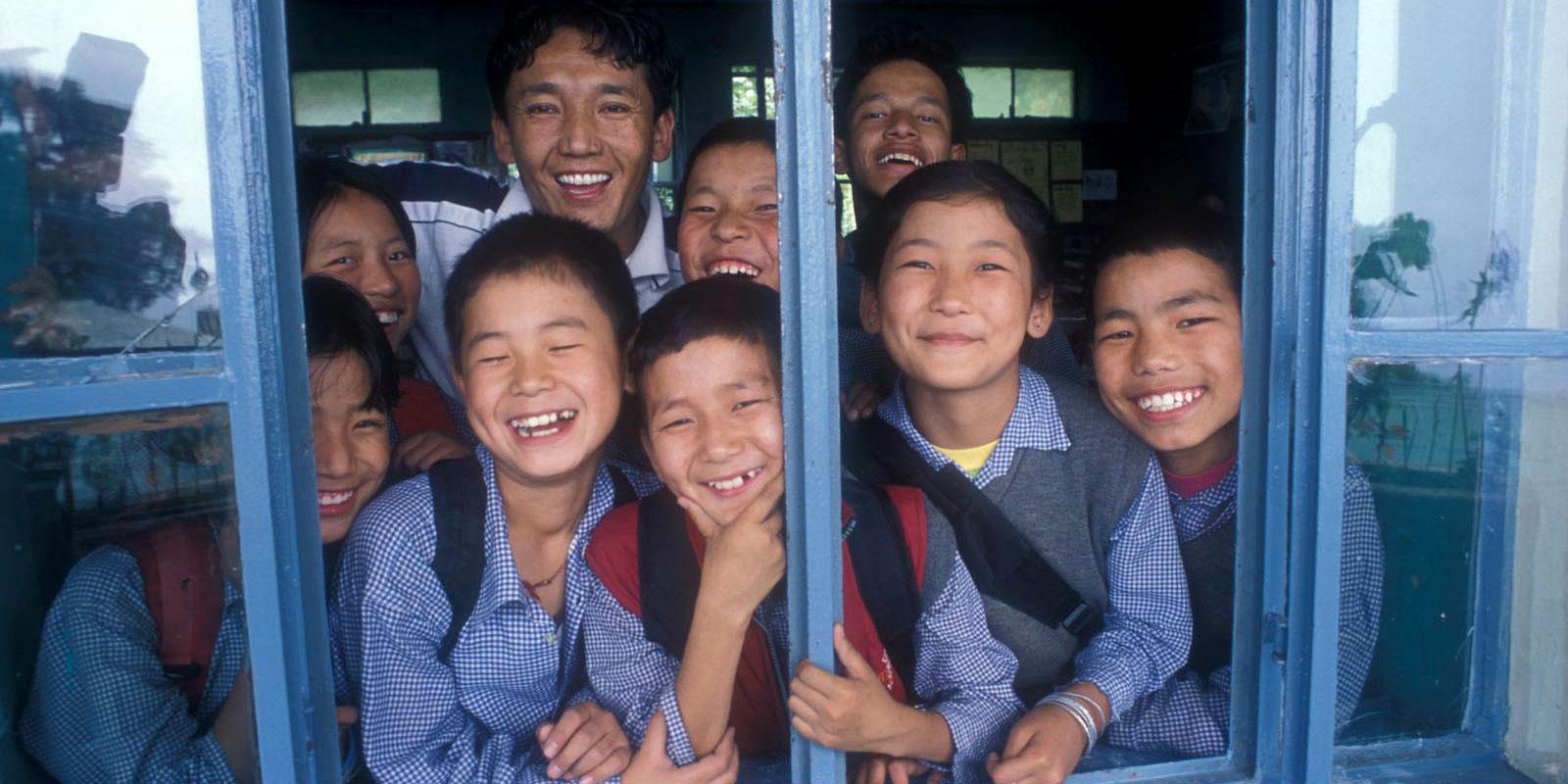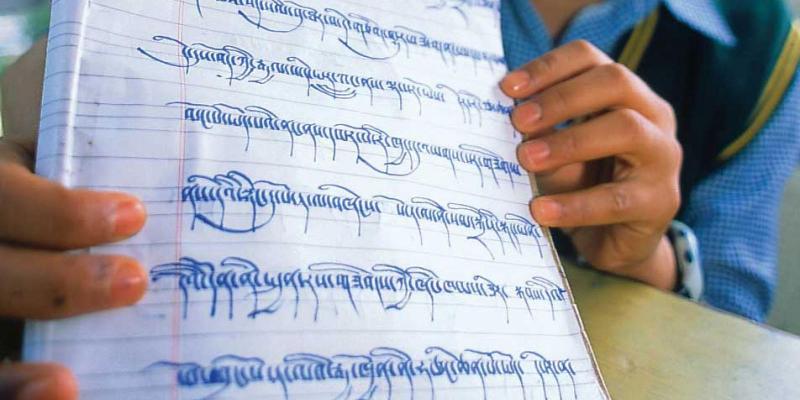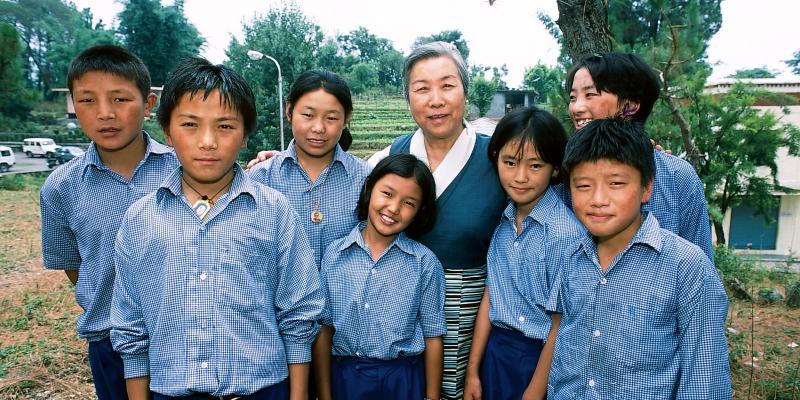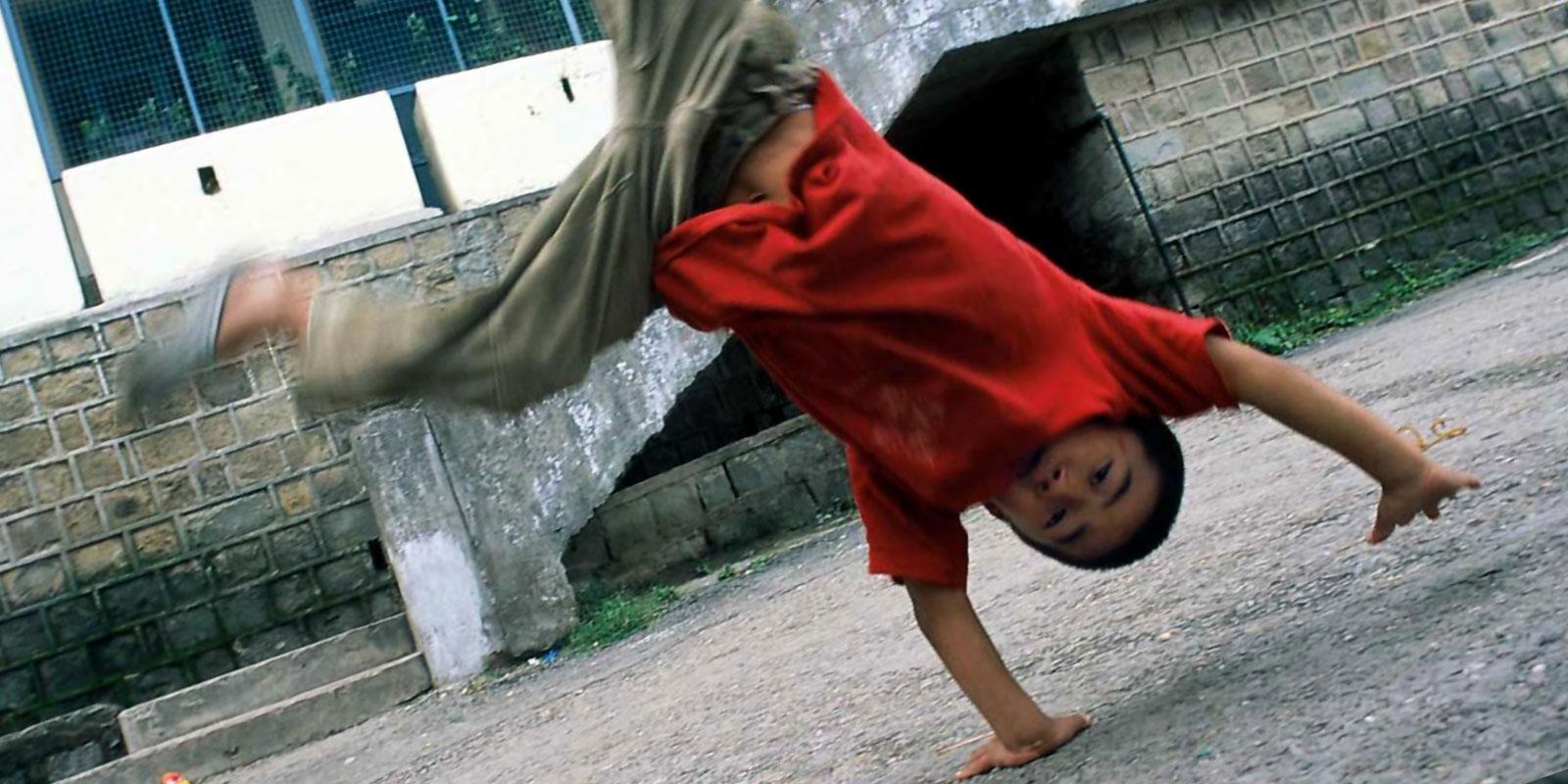
A day in the Tibetan children’s village
The day begins early in the children’s village. Rinchen is 11 years old. In his home, the home mother wakes the boys first. But they fall asleep again while she is off waking the girls!
06.00
The alarm clock rings – it’s time to get up. A massive family must wake, make the beds, wash and dress themselves at top speed. The elder children help to get the young ones up and ready.
07.00
Tibetans believe the mind works best early in the morning. That’s why the children do their self-study an hour before breakfast.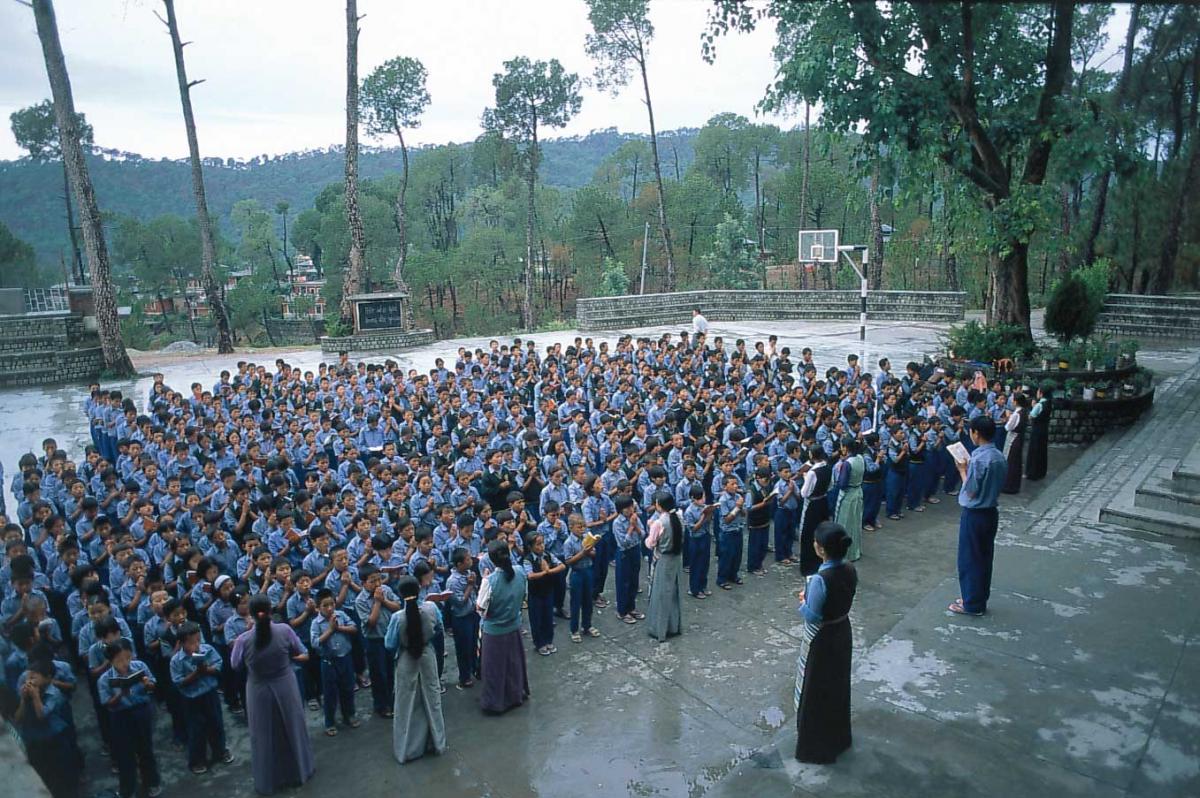
08.00
Before breakfast, the children say morning prayers. It is good for the body and soul, explains the home mother. When the children repeat their prayers – called mantras – they become calmer and more focused.08.45
A few times each week the whole school has a morning assembly. After a short prayer, the principal or a teacher talks about what has happened and what’s new.09.00 – 11.00
In the mornings there are lessons.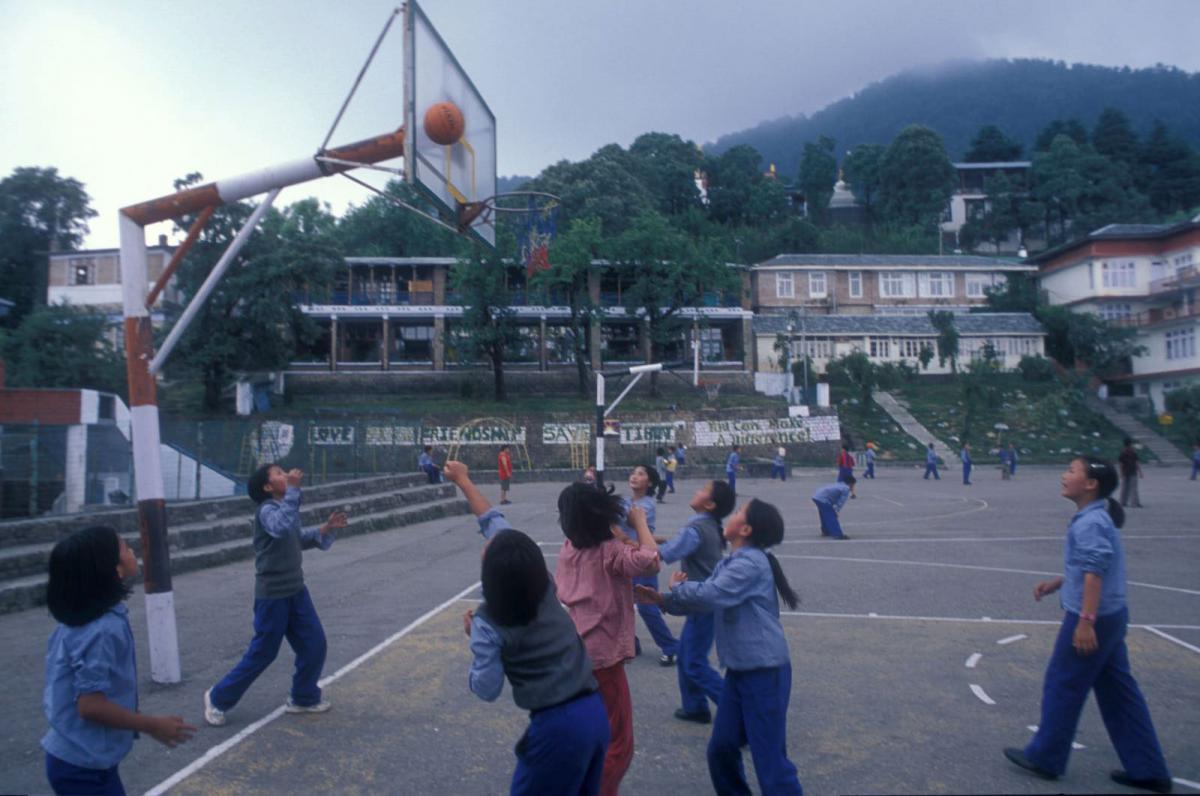
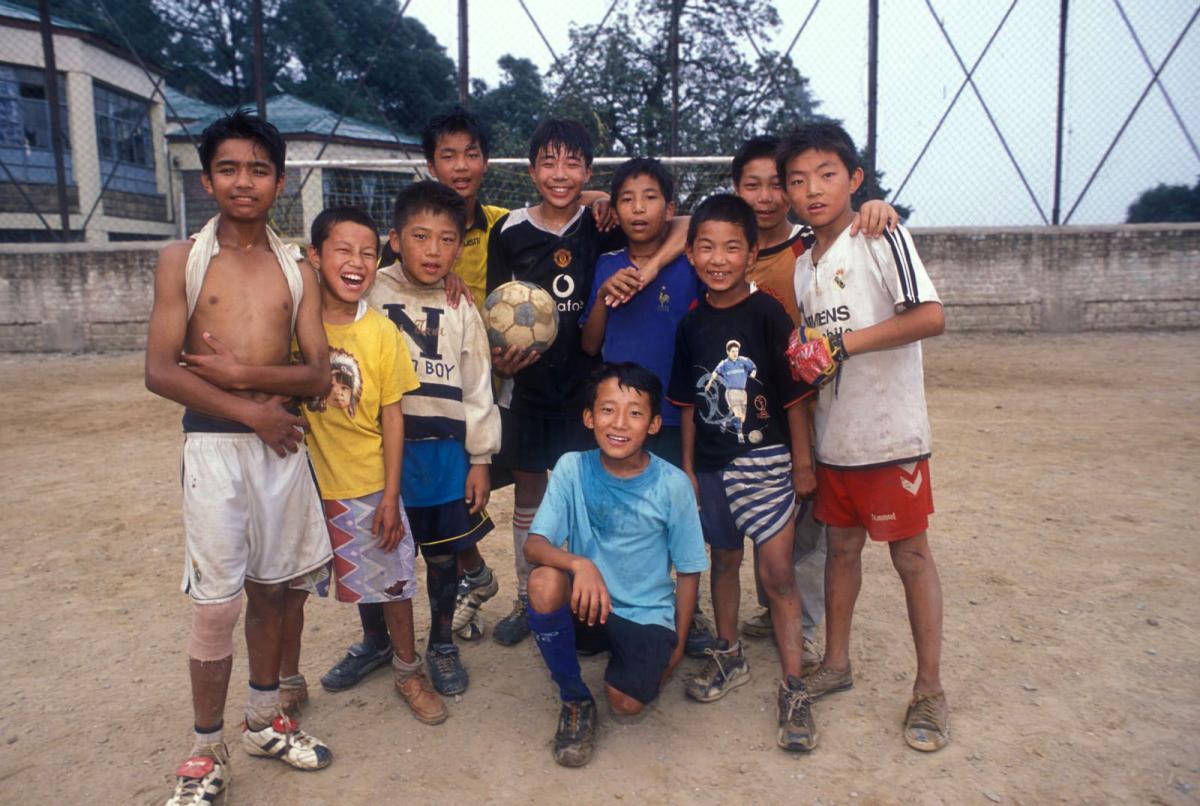
11.00 – 11.20
During the break there’s a lot to do. The basketball and football pitches are nearby.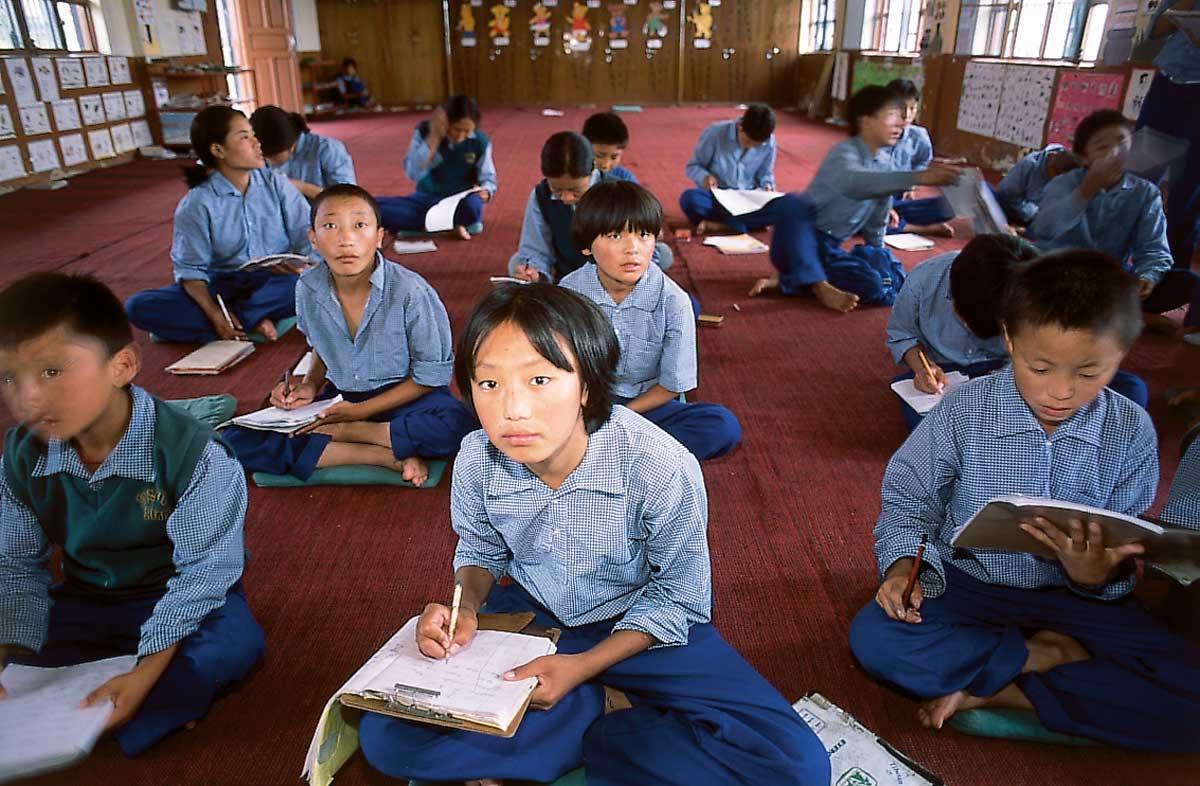
11.20 – 13.10
Lessons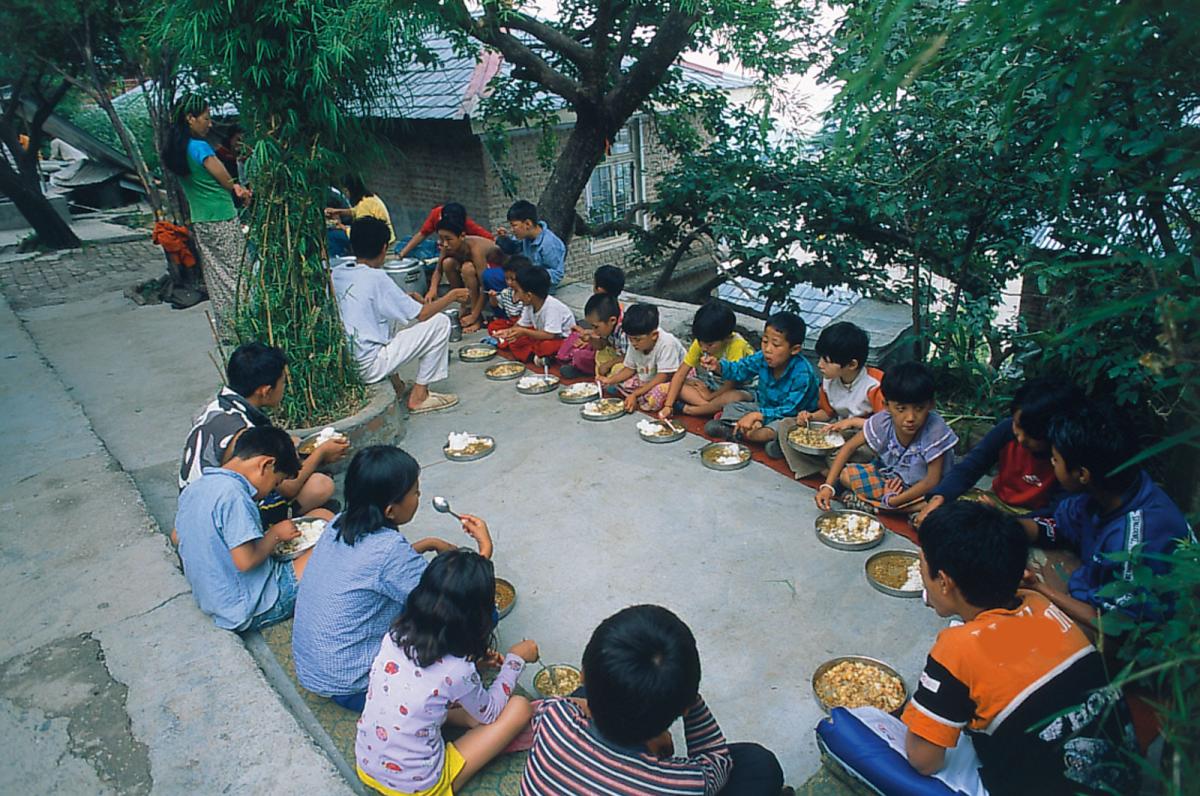
13.10 – 14.10 Lunch
During the lunch break, all the children rush home to their family homes where they help to tidy up and serve food. All meals are cooked at home and the boys and girls help with all the housework, from fetching water to peeling potatoes, washing clothes and making the beds. Just as they would have done at home in Tibet. If the weather is beautiful the children love to eat outside. The older children take care of the younger ones and help serve.14.10 – 16.00 Lessons
After lunch, the lessons continue, if the weather allows it. The children’s village in Dharamsala is badly affected, for example, by the monsoon rain – the area is India’s second rainiest place! When it rains hardest, the afternoon lessons have to be canceled. Some students have extra tutoring while others stay at home and play, do their homework and the housework.16.00 – 16.20 Teatime.
Tibetans love to drink butter tea, black tea mixed with salt and loads of butter made from yak milk. It is served in a wooden or metal bowl. It’s important to be healthy. The home mother gives vitamins to her children.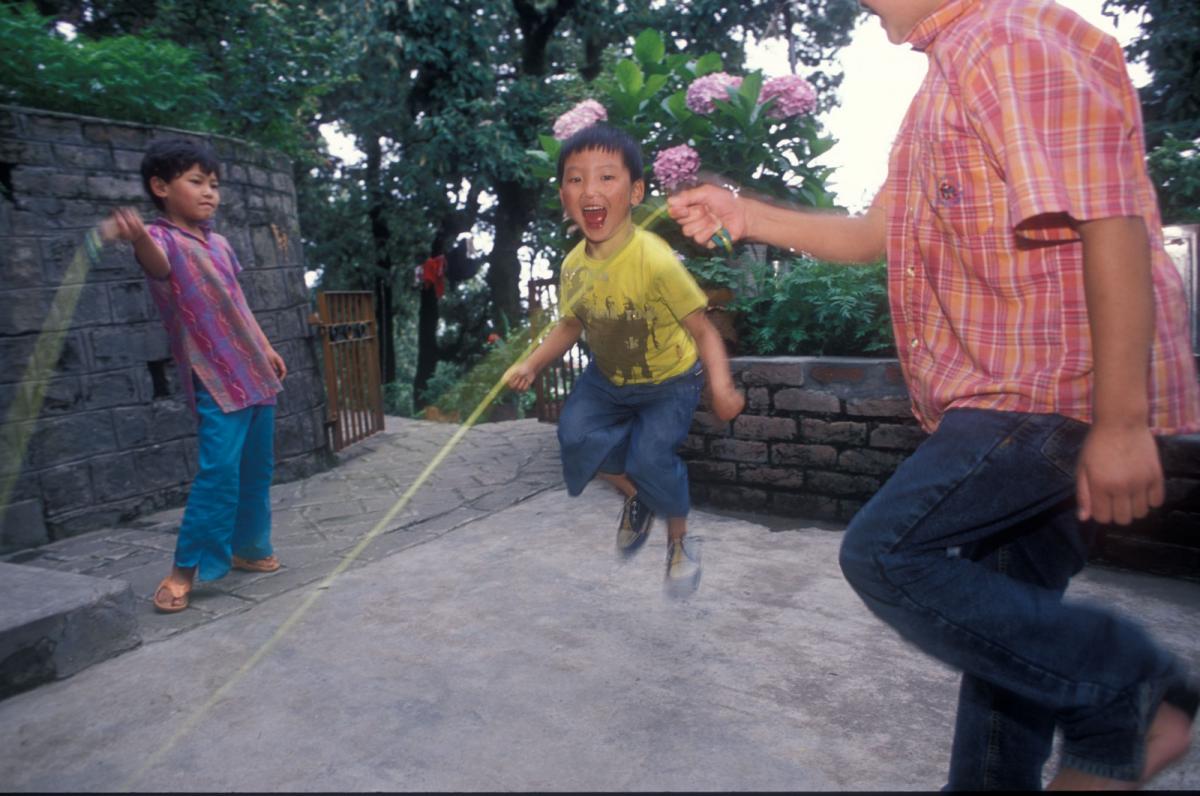
16.30 – 18.00 Play and homework
Many of the family homes have pets which need to be both loved and washed.18.00 Dinner.
The children’s villages often serve Indian food like rice and vegetables. Tibetan food, such as momos, takes too long to cook.20.30
Toothpaste delivery on the go before evening prayers. The home mother holds on to the tube hard.
21.00 Good night.
”Sim-ja-nango”. Goodnight. The lights go out. Many lie and think for a while or talk to friends beside them before they sleep. Others fall asleep straight away.One house – one home
Jetsun Pema wants the refugee children to grow up in a warm and safe home. That’s why the children’s villages have family homes instead of dormitories. They are called Khimtsang (meaning home in Tibetan). Between 25 and 40 children of different ages are cared for by one “home mother” and sometimes (if she is married) a “home father”. The first home was opened by the Dalai Lama in 1967. “My dream is that they should work like real homes where children can grow up as brothers and sisters,” says Jetsun Pema. And it works!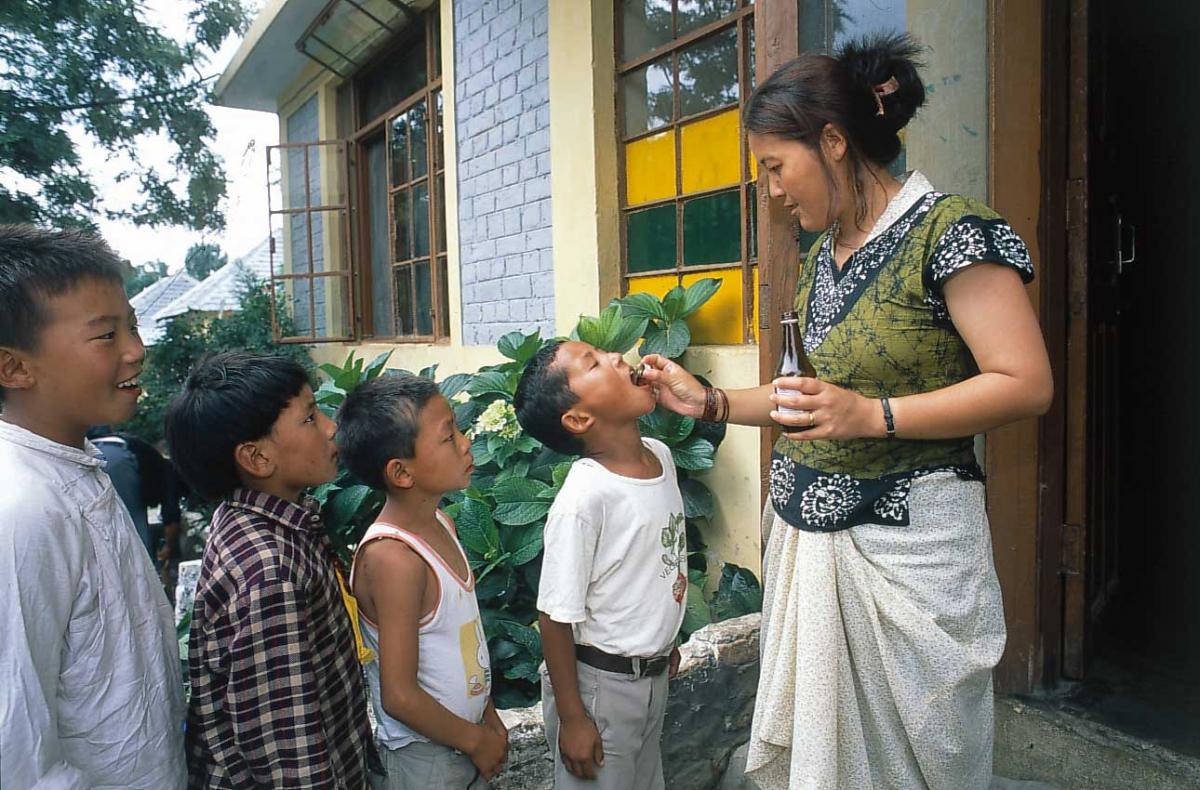
A school for mothers
“The ‘home mothers’ have the toughest job in the children’s villages,” says Jetsun Pema. They live together with up to 40 children and give them love and care from morning to night. To manage their work, all home mothers are trained for four months.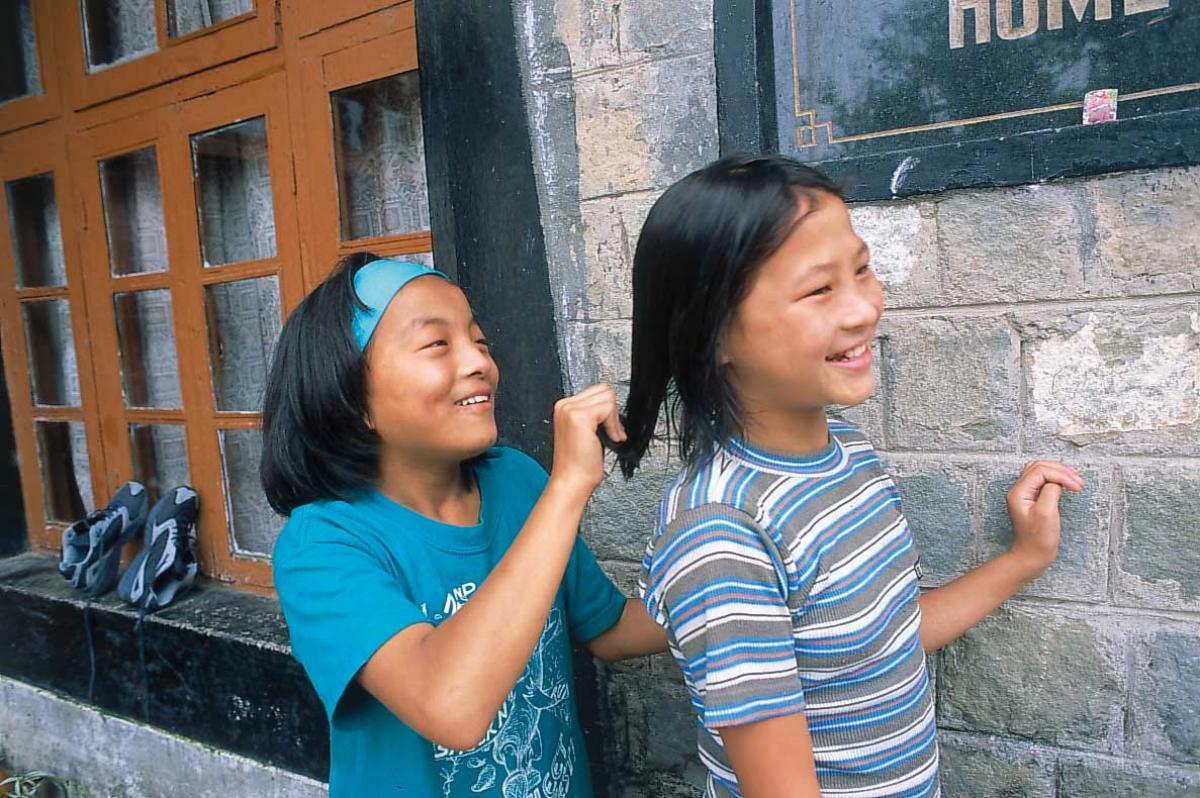
Friends help each other with their hair.© Kim Naylor/WCPF
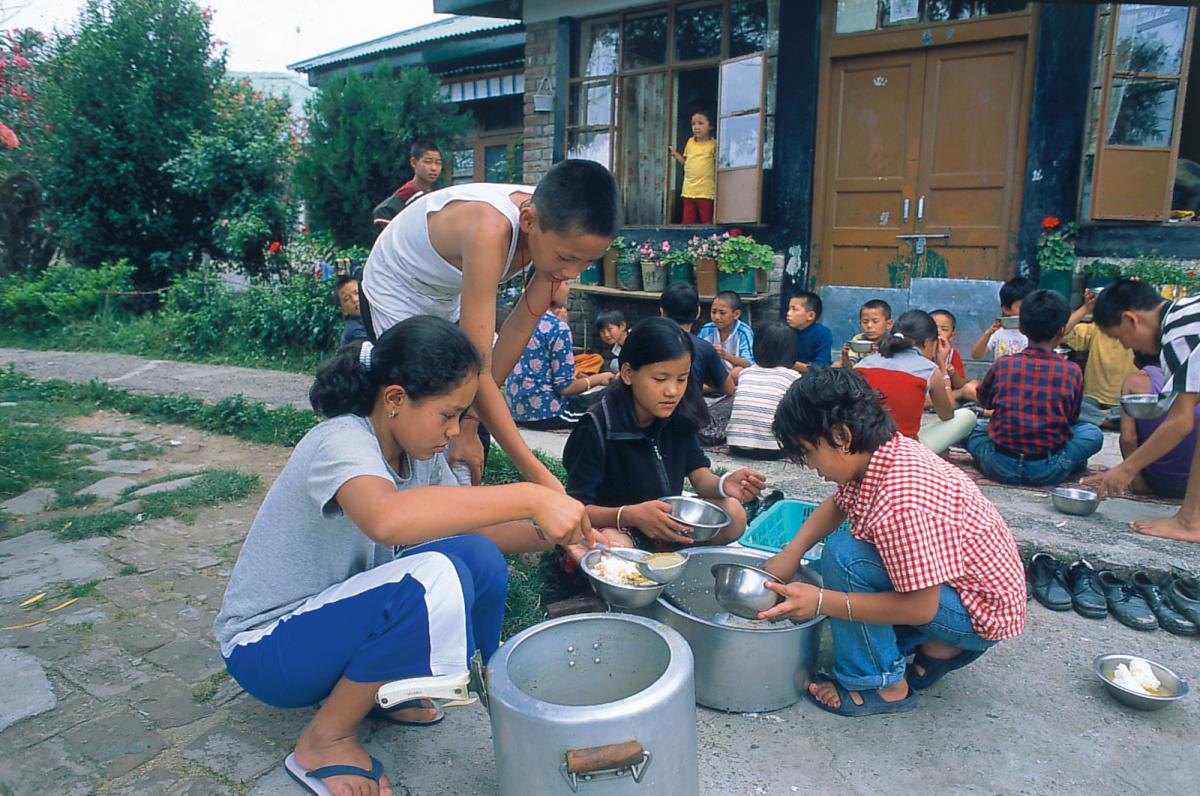
Washing-up time © Kim Naylor/WCPF
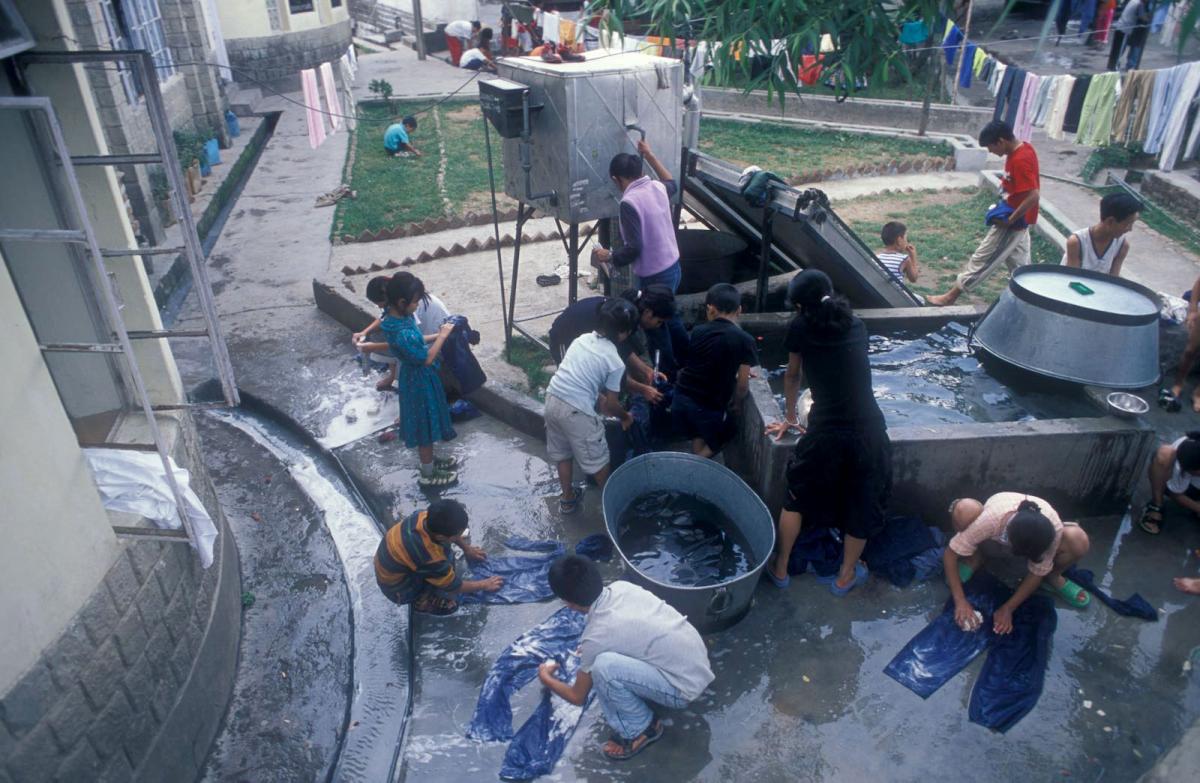
The big wash is done twice a week in all the family homes. © Kim Naylor/WCPF
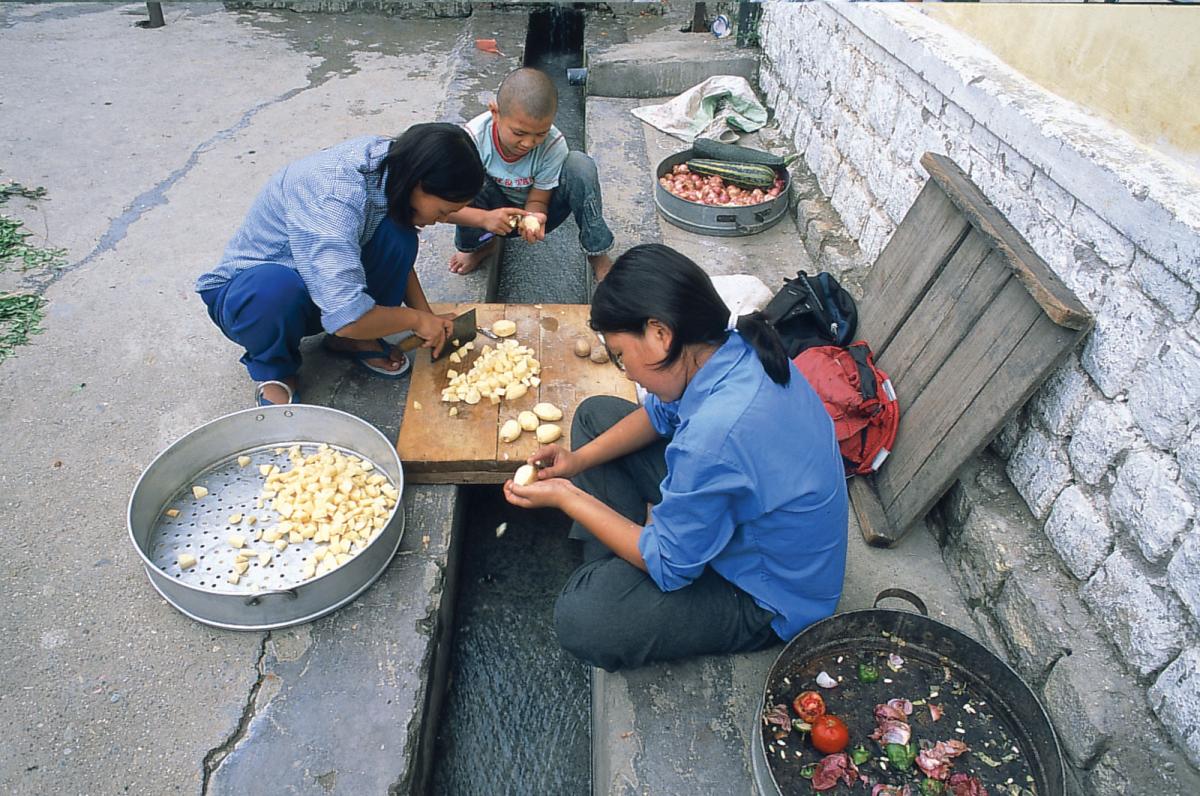
Related stories
WORLD'S CHILDRENS PRIZE FOUNDATION
Långgatan 13, 647 30, Mariefred, Sweden
Phone: +46-159-129 00 • info@worldschildrensprize.org
© 2020 World’s Children’s Prize Foundation. All rights reserved. WORLD'S CHILDREN'S PRIZE®, the Foundation's logo, WORLD'S CHILDREN'S PRIZE FOR THE RIGHTS OF THE CHILD®, WORLD'S CHILDREN'S PARLIAMENT®, WORLD'S CHILDREN'S OMBUDSMAN®, WORLD'S CHILDREN'S PRESS CONFERENCE® and YOU ME EQUAL RIGHTS are service marks of the Foundation.


x
x
x

